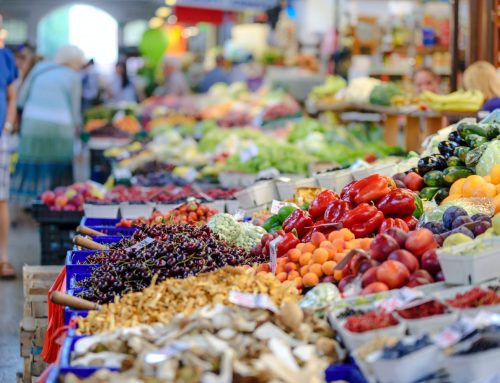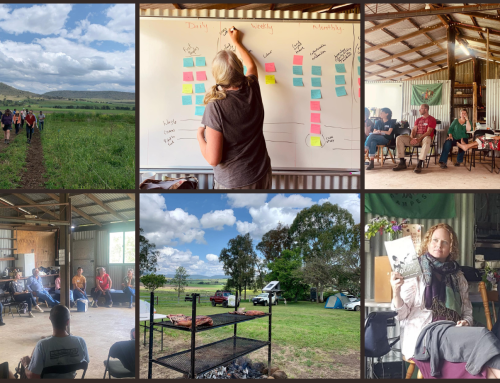The annual AFSA committee retreat at Point Lonsdale, held on the weekend of February 6-8, 2015, was a highly successful and motivating event that brought together many members of the new Committee for the first time.
Those able to attend were:
- President Tammi Jonas
- Vice-President Jeff Pow
- Secretary Nick Rose
- Communications Officer Alana Mann and
- Committee members:
- Louise Abson
- Michele Lally and
- Clare Richards.
What was quickly apparent was the nation-wide coverage AFSA is achieving through its new Committee, with representatives from South Australia, Victoria, NSW, WA and both ‘ends’ of Queensland – the South-East and the Far North.
This is a great opportunity to strengthen the presence and support that AFSA can offer its members in all states. We hope to see this scope reflected in our growing membership, which we aim to increase by 50 per cent by the end of 2015 under the keen stewardship of newly elected Membership Coordinator, Michele Lally.
High on the agenda of the weekend was recognising and consolidating the links that we have with other organisations that are part of the Fair Food movement, and in identifying areas we need to develop new partnerships, such as with Aboriginal and Torres Strait Islander communities.
The Retreat discussions constantly returned to the question of our key mandate and goals. We are a grass-roots organisation that takes its authority for decision-making from its members. Accordingly, AFSA needs mechanisms to draw on the expertise and opinions of long-standing members and other supporters who can make vital contributions to the development and progression of the Fair Food agenda. Therefore, as a Committee, we are going to work hard to develop more targeted communications that focus on the issues that our members are most concerned about, and provide ample opportunities for dialogue and collaboration.
We constantly returned to AFSA’s four main goals in our planning:
Goal 1 – Create a coherent and inclusive national narrative about Fair Food
We recognize the need to clearly define what we mean by ‘fair food’ and to support our arguments rigorously with facts and case studies that highlight the work and achievements of all our constituents, especially women and young people, in creating a fairer food system, one that is inclusive and celebrates diversity.
Goal 2 – Raise awareness about the serious challenges faced by our food and farming systems
There is a lot of misinformation about food and farming in Australia, and a dangerous complacency about our food security as a nation. Therefore part of our mission is to debunk the myths and assumptions concerning issues ranging from food safety and labeling to sustainable methods of production, animal welfare, large-scale foreign land investment and trade. In engaging on these topics we aim to create an open culture of information-sharing and decision-making, based on transparency and democratic engagement of all citizens.
Goal 3 – Campaign for policy and legislative change at the local, state and federal levels
Drawing on the experience and best practice of our members we aim to further develop the capacity of AFSA to engage broad-based coalitions on critical issues such as the regional impacts of climate change, fair and consistent regulation, and the funding of local food initiatives. We seek to identify policies and legislation that contribute to an unfair food system, and counter these through lobbying, campaigns and formal submissions. We aim not just to complain, but to offer viable solutions.
Goal 4 – Work with our members to develop strategies and actions that expand the growth of a fair food system in Australia
Central to this goal is identifying and sharing the inspiring projects, models and initiatives that are already in train across our nation. Peer-to-peer knowledge exchange and advice on compliance are among the ways AFSA can support members. Many of these strategies and actions are spelt out in the Peoples’ Food Plan (PFP).
This takes us to some key outcomes of the Retreat. One objective is to update the PFP to include more farmer perspectives, engage with indigenous issues and better reflect AFSA’s positions on key policies including regulation and trade. Our agreed positions on each issue are:
Regulation
AFSA supports fair, consistent application of the regulation of food to ensure it is produced and distributed safely. In contrast to regulation, prohibition creates the dilemma that should people persist in accessing a prohibited food, there is not consistent regulated process governing its production and distribution. The public health risks therefore remain for people who continue to access such food. The human reality is that some people choose for reasons of personal and cultural beliefs to access such foods even if prohibited. For all of these reasons AFSA favours fair and consistent regulation, built in democratic consultation with all stakeholder groups, for all foods.
Trade
AFSA supports a shift away from competitive free trading arrangements, towards the development of fair, transparent and co-operative trading relations between peoples and countries, in which the benefit of all peoples is paramount.
A further objective was to tailor an AFSA definition of food sovereignty, based on that of the global farmers’ movement, La Via Campesina:
Food sovereignty asserts the right of peoples to nourishing and culturally appropriate food produced and distributed in ecologically sound and ethical ways and their right to collectively determine their own food and agriculture systems.
Other key outcomes
Other key outcomes of the Retreat include the appointment of Jeff Pow as the official spokesperson for the Fair Food Farmers United (FFFU). Over the next few months Jeff will be working closely with the Communications team to raise the profile of the ‘Triple FU’ and engage a wide range of producers across all states. This awareness raising will be facilitated by the well-attended screenings of Fair Food documentary, which continues to motivate urban and rural audiences to become part of our growing movement.
In conclusion, our weekend of reflection and planning in Point Lonsdale showed us that AFSA has made significant progress in opposing the dominant forces of Big Food and its supporters, since the inception of the People’s Food Plan in 2012. Though we are not as well resourced as our opponents, we have bigger hearts and strength in numbers.
We look forward to working in solidarity with you in 2015.



